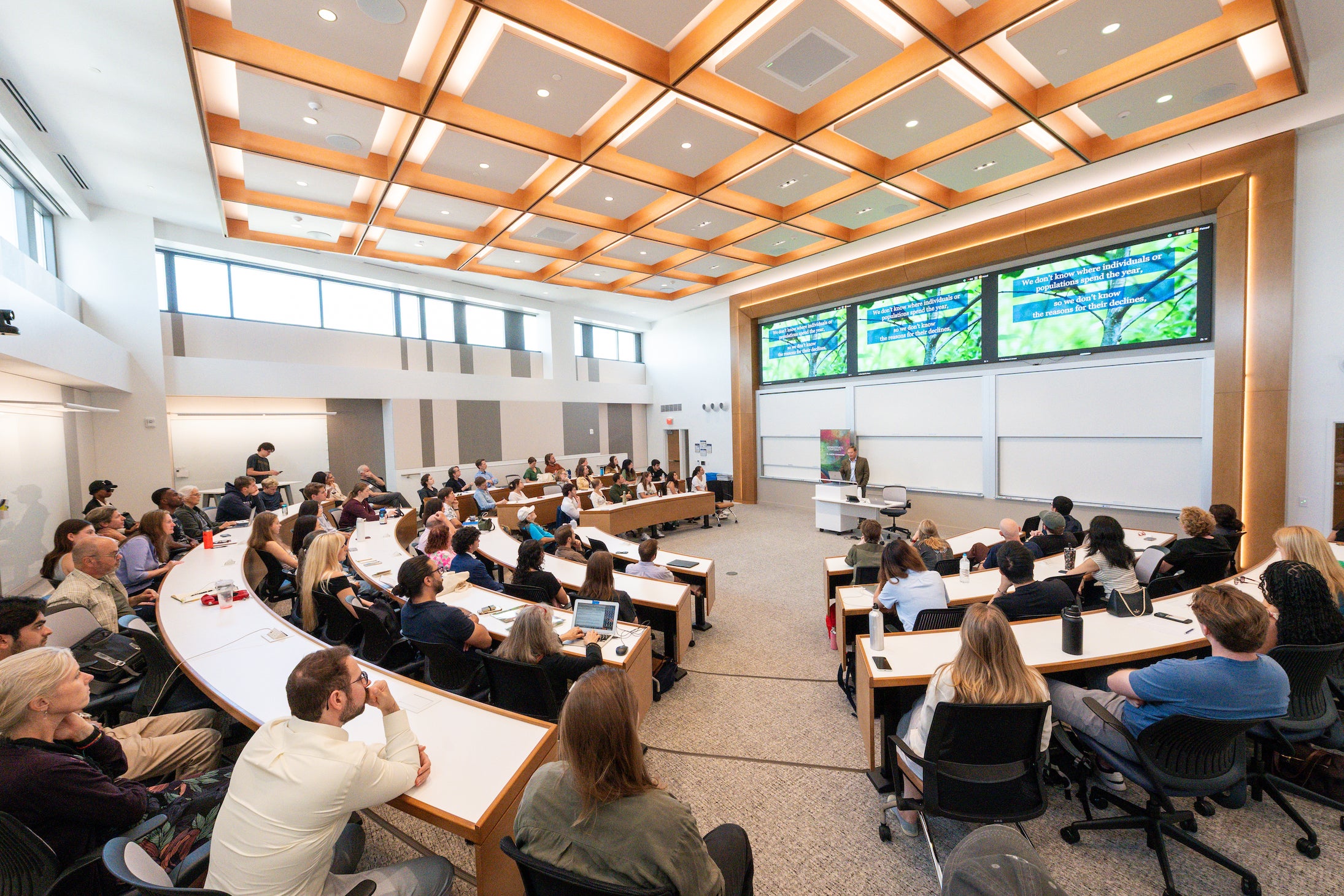Faculty
Peter P. Marra
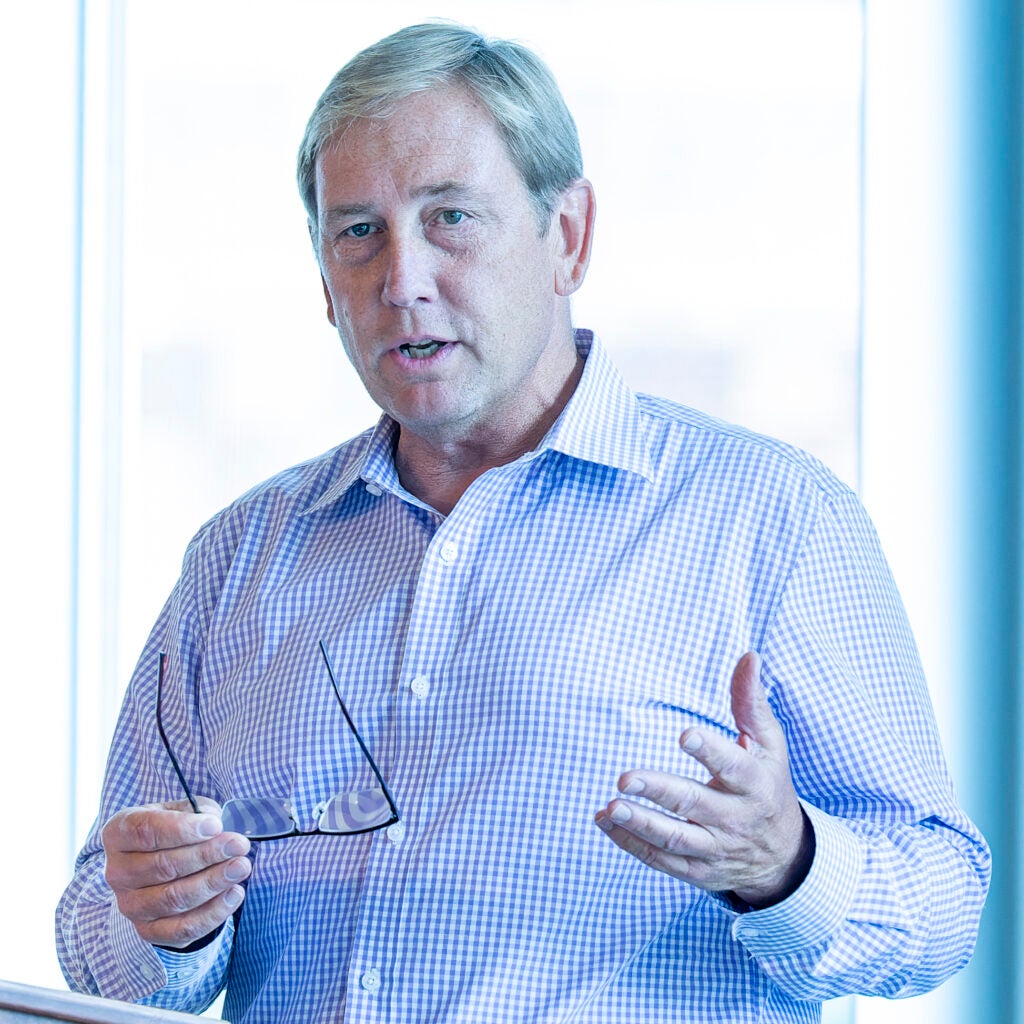
Dean, The Earth Commons
Laudato Si’ Professor of Biology and the Environment
Professor, McCourt School of Public Policy
Regents Hall, Room 391
Email: peter.marra@georgetown.edu
Peter Marra uses birds to help us define and understand broad environmental issues, tackling contemporary conservation challenges by addressing fundamental knowledge gaps at the intersection of ornithology, ecology and conservation biology. His transformative work—including quantifying the loss of 3 billion birds from North America, the impacts of climate change, the astounding ecological destruction of outdoor cats and emerging diseases such as West Nile virus—explores the interaction between humans and our environment and poses critical questions to humanity about the environmental costs of urbanization and globalization. His work spans biology, engineering, physiology, and biogeochemistry, and has helped ignite new research into the study of full life cycles of migratory animals while furthering technological advances, including the use of genetics, stable isotopes and remote tracking technologies. Marra uses integrative techniques and rigorous quantitative approaches, leveraging data to link fundamental ecological advances to address conservation problems and reimagine approaches that inform policy. 55 current and former students and his position as founding director of the Earth Commons—Georgetown University’s new institute for environment and sustainability—demonstrate Marra’s dedication to moving research to implementation and educating the next generation of diverse scientists.
Pete comes to Georgetown University after a 20-year career at the Smithsonian Institution, most recently as Director of the Migratory Bird Center. He has a Ph.D. from Dartmouth College and has authored over 260 peer-reviewed papers published in journals such as Science, Nature and Conservation Biology on various aspects of the biology and conservation of birds and other animals, as well as on topics as broad as urban disease ecology. He co-edited the frequently cited book, Birds of Two Worlds, and recently published a second book, Cat Wars: The Devastating Consequences of Cuddly Killer. Pete lives in Takoma Park with his wife and two kids, is an avid fisherman, a gardener and cook.
Randall Amster

Co-Director, Joint Environment & Sustainability Program
Director, Environmental Studies Program
Teaching Professor, The Earth Commons & College of Arts & Sciences
Senior Advisor for Vision & Strategy at the Red House
Email: randall.amster@georgetown.edu
Randall Amster teaches and publishes on subjects including peace and nonviolence, social and environmental justice, political theory, and emerging technologies; writes for a wide range of popular and scholarly publications; and has served on the board for numerous academic journals and community organizations. His research interests include environmental peacebuilding, climate justice, community engagement, “digital food,” and ecotopian fiction. On campus, he works with entities including The Red House (Senior Advisor for Vision & Strategy), the Prisons & Justice Initiative (BLA program Faculty Advisory Board), and the Interdisciplinary Studies Major (Mentor & Faculty Advisory Committee), among others.
Tim Bartley
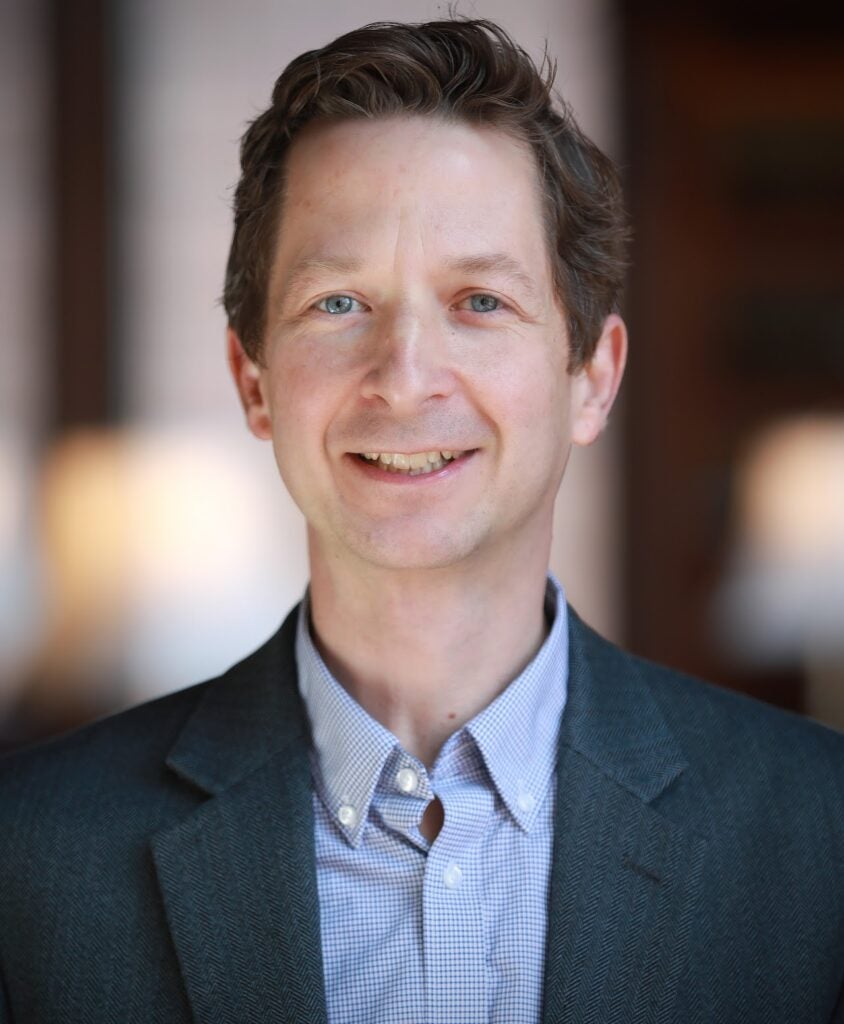
Professor, the Earth Commons, Department of Sociology
Email: tb1114@georgetown.edu
Tim Bartley is a sociologist who studies sustainability standards, environmental/environmental justice movements, and the regulation of global industries. More broadly, he is interested in political, organizational, and economic processes that shape environments, workplaces, and the expression of rights around the world.
His 2018 book, Rules without Rights: Land, Labor, and Private Authority in the Global Economy (winner or the Harold and Margaret Sprout Award for environmental studies from the International Studies Association) examined sustainable forestry and fair labor standards in Indonesia and China. In current work, he is examining collective perceptions of “distant” problems, regulatory change in the European Union, and how green industrial transitions proceed or falter. He does both qualitative and quantitative research, ranging from semi-structured interviews with companies and advocacy groups to survey experiments with citizen-consumers and workers.
Prior to coming to Georgetown, he was a Professor of Sociology at Washington University in St. Louis, and he has also held previous appointments at Stockholm University, Ohio State University, and Indiana University. He received his PhD from the University of Arizona and has been lucky to spend time as a visiting scholar at the University of Konstanz and Max Planck Institute for the Study of Societies in Germany, the University of St. Gallen in Switzerland, Sun Yat-sen University in China, the University of Paris-Dauphine, Princeton, and MIT. He is the chair (2022-23) of the American Sociological Association’s section on Organizations, Occupations, and Work, as well as a coordinator of the Regulation & Governance network for the Society for the Advancement of Socio-Economics.
Kerrie Carfagno
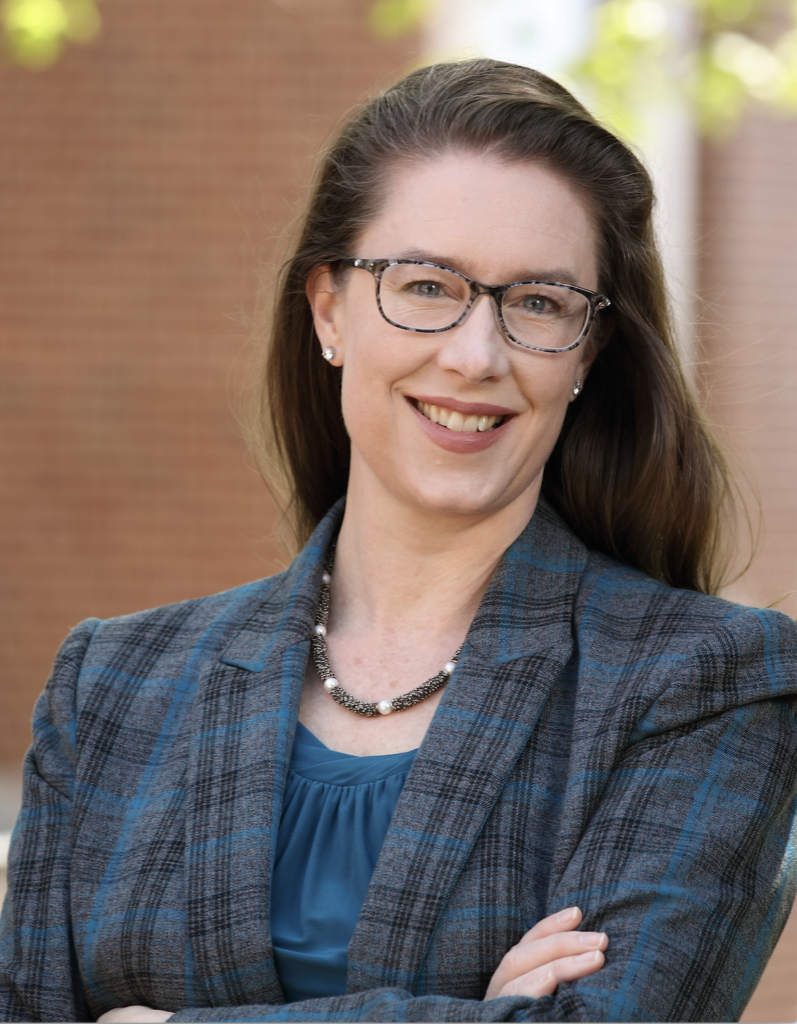
Associate Teaching Professor, the Earth Commons, McDonough School of Business; Program Director, Master of Science in Environment and Sustainability Management
Email: kc1377@georgetown.edu
Kerrie Carfagno has taught sustainable business and management communication courses with an emphasis on communication strategy, change management, leadership, ethics, and data visualization for more than 15 years. Kerrie is particularly interested in the financial and ethical impact of climate change on businesses at the industry, corporate, and societal levels. She focuses on how leaders can effectively communicate climate risk (and opportunity) to increase profitability, resiliency, and sustainability. She employed these concepts in her global sustainability elective courses and her study abroad courses to Scandinavia in partnership with DIS. Kerrie is also a senior fellow at Generation 180, a non-profit organization working to inspire and equip people to take action on clean energy.
Most recently, Kerrie developed and taught undergraduate courses in these areas for the McIntire School of Commerce at the University of Virginia (UVA) as well as graduate programs for UVA’s M.S. in Global Studies, M.S. in Accounting, M.S. Commerce program, and for their joint program with UVA’s Darden Business School for their M.S. in Business Analytics program. She also taught for the McIntire Business Institute’s (MBI) sustainability certificate program in addition to teaching and leading global sustainability classes and executive education content for UVA’s McIntire and Darden schools. Before joining UVA in 2014, Kerrie taught sustainability-focused business courses at John Carroll University, the University of Alberta, and Penn State University. She earned her Ph.D. in Values-Driven Leadership (with a focus on sustainability and ethics) and, in the process, was an Aspen Institute Scholar at their 2011 Environment Forum.
This past fall, Kerrie founded and hosted the McIntire School of Commerce’s inaugural Blue Ridge ESG Seminar to enable students to learn directly from industry leaders—particularly on the environmental challenges and risks facing businesses.
Jason Farr

Assistant Teaching Professor, The Earth Commons
Email: jason.farr@georgetown.edu
Jason Farr is a philosopher and Assistant Teaching Professor at the Earth Commons. He holds a Ph.D. in Philosophy from Georgetown University and a B.A. in Political Philosophy, Policy, and Law from the University of Virginia.
Jason’s research lies at the intersection of metaethics and environmental ethics. He aims to uncover the social and environmental foundations of human ethical standpoints, focusing especially on their socio-environmental structural features and social coordinating functions. Despite the theoretical nature of this work, Jason aims to draw from it practical, ethical lessons for building and shaping contemporary social systems and structures in response to pressing ethical issues, including environmental crises like climate change.
He currently teaches courses in environmental ethics and philosophy, including the foundational environmental ethics course for the B.S. in Environment and Sustainability. He is a Senior Fellow at Ethics Lab, where he has served as educational director for the Lab’s postdoctoral program and co-lead of the Embedded Ethics program, which integrates ethics lessons and activities into courses in environmental science, computer science, data science, and public policy.
Before joining the Earth Commons, Jason worked at the Kennedy Institute of Ethics, where he taught environmental and technology ethics, contributed to curricular development for Georgetown’s Tech, Ethics, and Society program and the B.S. in Environment and Sustainability, and developed translational ethics guidance for nonprofits and technology organizations.Outside of the university, Jason serves as Vice President of the Nature Camp Foundation and teaches botany each year at Nature Camp’s Adult Session.
Gina Green
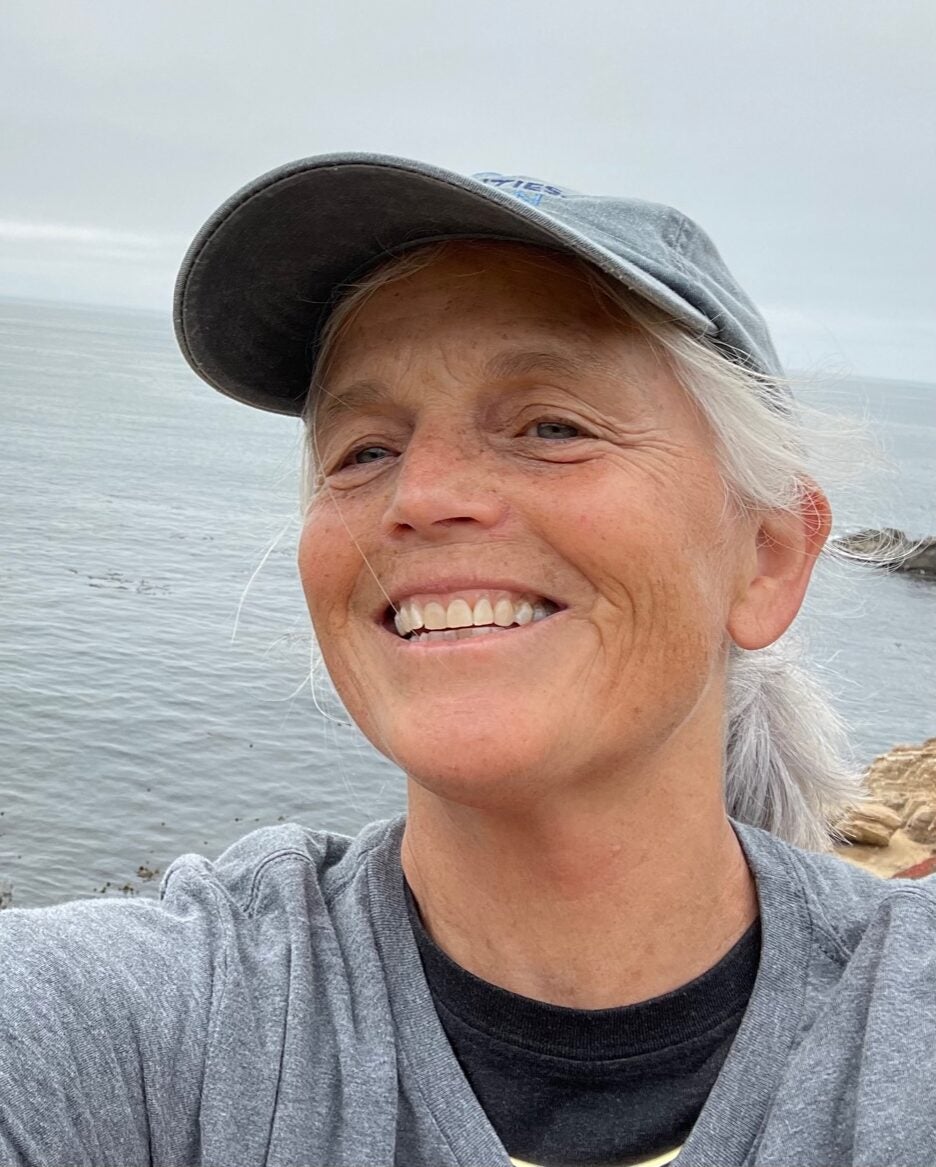
Professor of the Practice, The Earth Commons
Email: gg742@georgetown.edu
Gina Green is a specialist in biodiversity (terrestrial and marine), climate change, forestry, and agriculture. She has over 35 years of experience designing, implementing, and evaluating initiatives to protect and manage marine and terrestrial resources in Latin and North America, Caribbean, Asia, and the Pacific. Dr. Green worked for the Environment and Natural Resource Sector for Tetra Tech-ARD as a Senior Technical Scientific Associate and was responsible for the execution of highly lauded marine biodiversity, fisheries, and marine debris prevention programs. For over 12 years she grew and managed Tetra Tech’s portfolio of USG international marine coastal initiatives. Dr Green has lived and worked throughout the Caribbean, Latin America, Africa, and Southeast Asia, implementing Forestry, Climate Change, Marine Debris Recovery and Sustainable Fisheries programs. She is fluent in Spanish.
Previously, Dr. Green served as Vice President for The Nature Conservancy, where she worked with a team to build the TNC Caribbean program. While at TNC she developed and implemented the first Initiative for Joint Implementation-certified carbon sequestration project located in Belize, assisted with the first Caribbean Debt for Nature swap, initiated the sister-forest program between USFS and the Caribbean (which was for the John Crow, Blue Mountain National Park in Jamaica), gained the needed private and public support for the sustainable management of a million-hectare ridge-to-reef corridor in Belize and assisted in the development of the Tropical Forest Conservation and Coral Reef Conservation Acts. Dr. Green has testified to Congress on the need of funding for tropical marine biodiversity. She began her professional career working for the USFS in Oregon as a wilderness ranger, fire fighter, and recreational planner.
Dr. Green serves as board member on the National Whistleblower Center, where she has helped the organization expand its activities to include representation of environmental, fisheries and wildlife trafficking whistleblowing. She also owns and co-manages Kew Park and Copse Mountain Farms, in western Jamaica. She holds a D. Phil in Natural Resource Management from Oxford University, M.Sc. from Oxford University, and BS in Natural Resource Management from the University of Oregon. During 2001 she took a sabbatical from TNC and established and taught as a visiting lecturer the Masters in Biodiversity Management course at Oxford University. Dr. Green has authored academic articles and spoken widely about her work and projects.
Brian Griffiths

Assistant Teaching Professor, The Earth Commons
Email: bg742@georgetown.edu
Brian Griffiths is an Assistant Teaching Professor in the Earth Commons. He holds degrees in Environmental Engineering (B. Eng) and Plant Science (B.S.) from the University of Delaware and a Ph.D. in Environmental Science and Public Policy from George Mason University. He takes an interdisciplinary approach to research and teaching, examining environmental sustainability and conservation from social, cultural, economic, and ecological perspectives. Brian’s research focuses on game mammal conservation in the Peruvian Amazon, where he has collaborated for several years with the Indigenous Maijuna people. Specific focus areas include the sustainability of hunting, the ecology and behavior of game species at mineral lick sites, the sociocultural complexities of hunting and the game meat supply chain, and the impacts of cultural loss on the conservation of biodiversity. Brian has a passion for using socially informed research and digital storytelling to empower Amazonian Indigenous people to conserve their cultures and the environment and using visual media to promote conservation awareness. He collaborates with several nonprofit institutions in his work, including OnePlanet, the Morpho Institute, Alliance for a Sustainable Amazon, ACEER, and many others.
Raha Hakimdavar
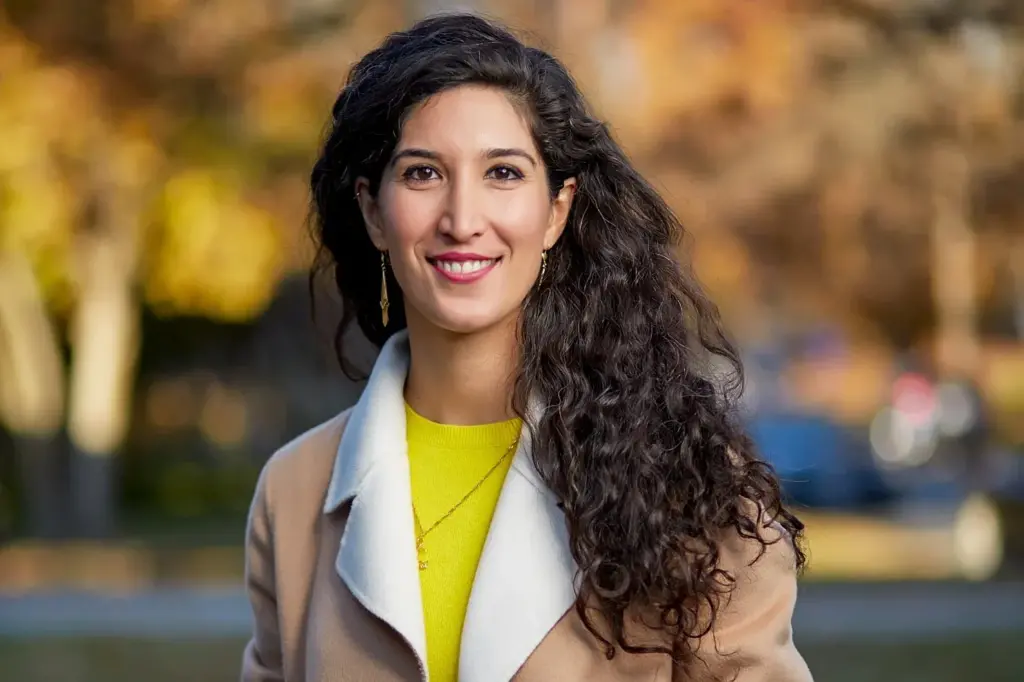
Senior Advisor to the Dean of Georgetown University Earth Commons and Dean of Georgetown University in Qatar
Email: raha.hakimdavar@georgetown.edu
Raha Hakimdavar is Senior Advisor to the Dean of Georgetown University Earth Commons and the Dean of Georgetown University in Qatar in the areas of climate, environment, and innovation. She is also an Adjunct Professor at Georgetown University’s School of Foreign Service and the Founder and CEO of Zyon Space, a climate-tech startup that develops climate adaptation solutions using the vantage point of space.
Dr. Hakimdavar was previously the Director of Space Sciences at Ball Aerospace, where she led business strategy and engagements with NASA and the broader space sciences community. She served in civil servant appointments with the USDA and NASA prior to this. At the USDA Forest Service, she was the national watershed program hydrologist and acting national program lead for remote sensing and geospatial analysis research, successfully leading initiatives and securing funds to integrate satellite data into forest level decision-making. Her leadership as a Presidential Management Fellow at the NASA Goddard Space Flight Center led to a revision of UN Environment’s reporting methodology for the Sustainable Development Goal on Water and Sanitation and creation of a US Government wide global hydrology model for water security that is currently being operated by the US Air Force. Dr. Hakimdavar has served as a technical consultant for UN Environment, the World Bank, and USAID on disaster risk reduction, water, and forestry projects for over a decade.
Dr. Hakimdavar holds a B.S. in civil engineering from California State Polytechnic University, and a M.S. and Ph.D. in hydrology from Columbia University. She served as a Fulbright Fellow in Water Management in the Netherlands and was awarded the 2018 KLM Sustainability and Innovation award for her efforts.
Rebecca Helm
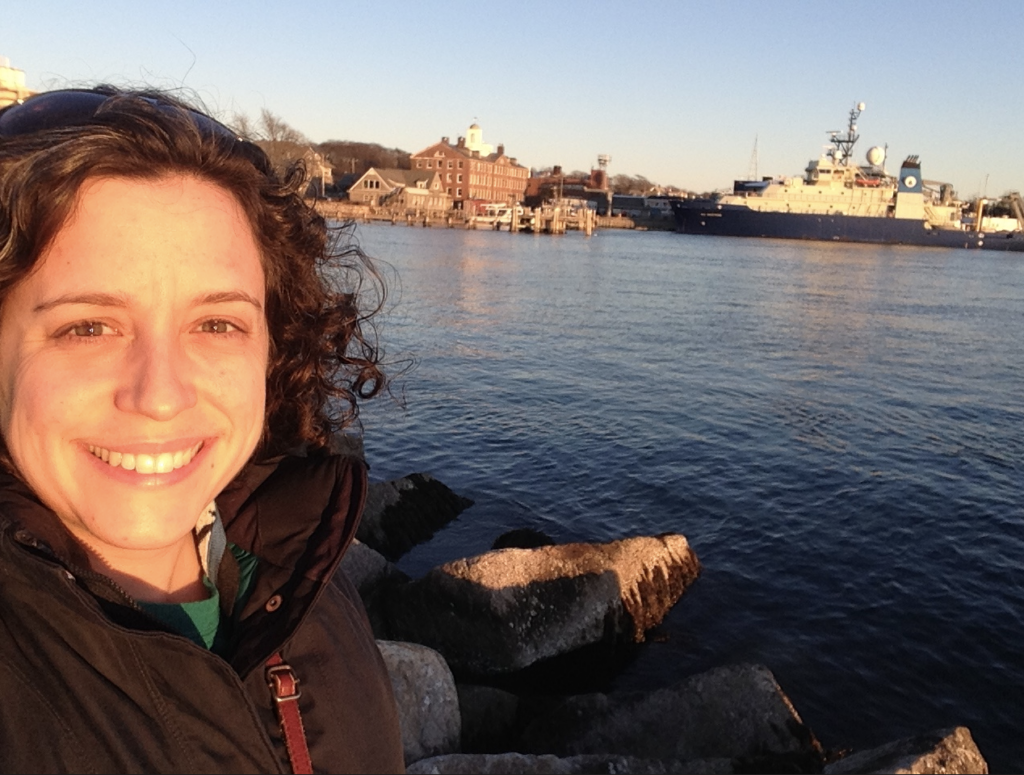
Assistant Professor, The Earth Commons
Email: rh1203@georgetown.edu
Rebecca Helm is a marine biologist studying life in the open ocean and at the ocean’s surface. Helm grew up in Arizona and completed her undergraduate degree in Marine Science at Eckerd College before conducting research on jellyfish life cycles as a Fullbright Fellow in South Africa. Helm received a Ph.D. in Ecology and Evolutionary Biology from Brown University, where she was an NSF Graduate Student Research Fellow and an NSF EPSCoR fellow. Her Ph.D. work focused on the evolution of open-ocean and coastal jellyfish species. Helm then conducted research on circadian rhythms as a postdoc at Woods Hole Oceanographic Institution, and later at the Smithsonian National Museum of Natural History as an NSF Postdoctoral Fellow, where she continued her research on coastal and open-ocean jellies. For the last four years, Helm has been an Assistant Professor at the University of North Carolina Asheville, where she has led multiple interdisciplinary projects on the biology of life on the high seas.
Kathleen Holland
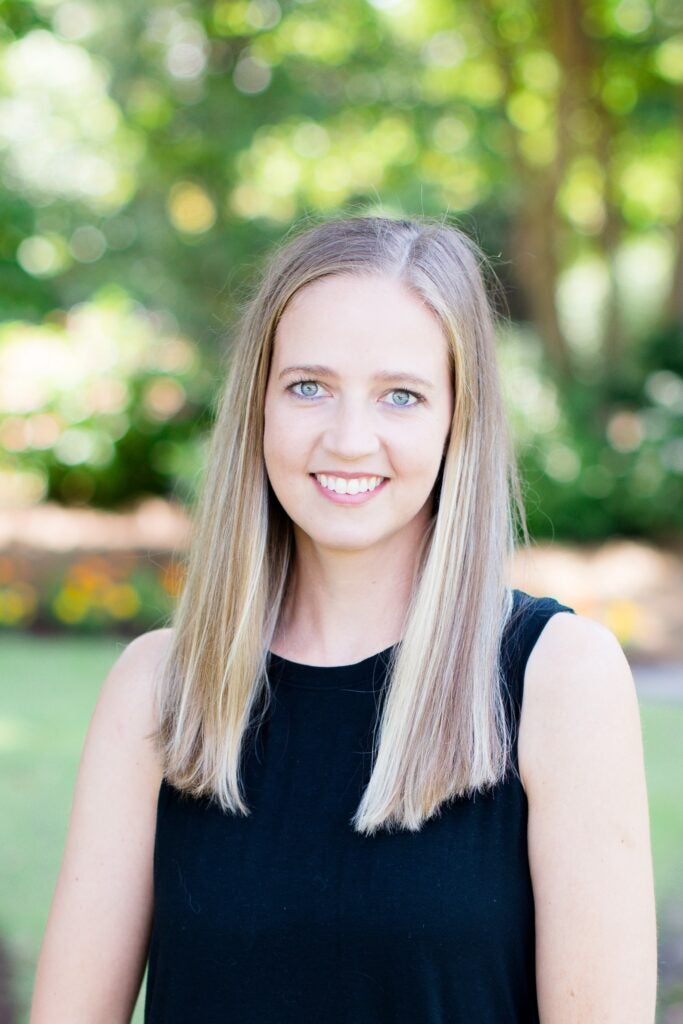
Conservation social scientist, Associate Research Professor, Earth Commons Institute
Kathleen Krafte Holland is a conservation social scientist and Associate Research Professor in the Earth Commons Institute. Her research focuses on the human dimensions of conservation, including protected area management, community engagement, human-wildlife interactions, private lands conservation, and strategic conservation planning. Katie’s work has taken her to six continents, where she has explored the diverse opportunities and challenges of conservation management and the need for integrated approaches to solve complex environmental issues.
Prior to joining the Earth Commons team, Katie was a Research Scientist at Virginia Tech where she served as the National Bird Conservation Social Science Coordinator. In this role, Katie worked with bird conservation initiatives to integrate and center human dimensions efforts. Katie holds degrees in Biology and Education (BA) from the University of North Carolina at Chapel Hill, Zoology (MA) from Miami University and a PhD in Parks and Conservation Management from Clemson University.
In her role with the Earth Commons, Katie is the Lead Social Scientist for the Road to Recovery (R2R) initiative. She brings a deep passion for both people and wildlife to this work, emphasizing that humans are a vital part of conservation success. Through R2R, Katie applies human dimensions strategies to support the recovery of Tipping Point Species and advance collaborative, people-centered conservation.
Taylor Jones
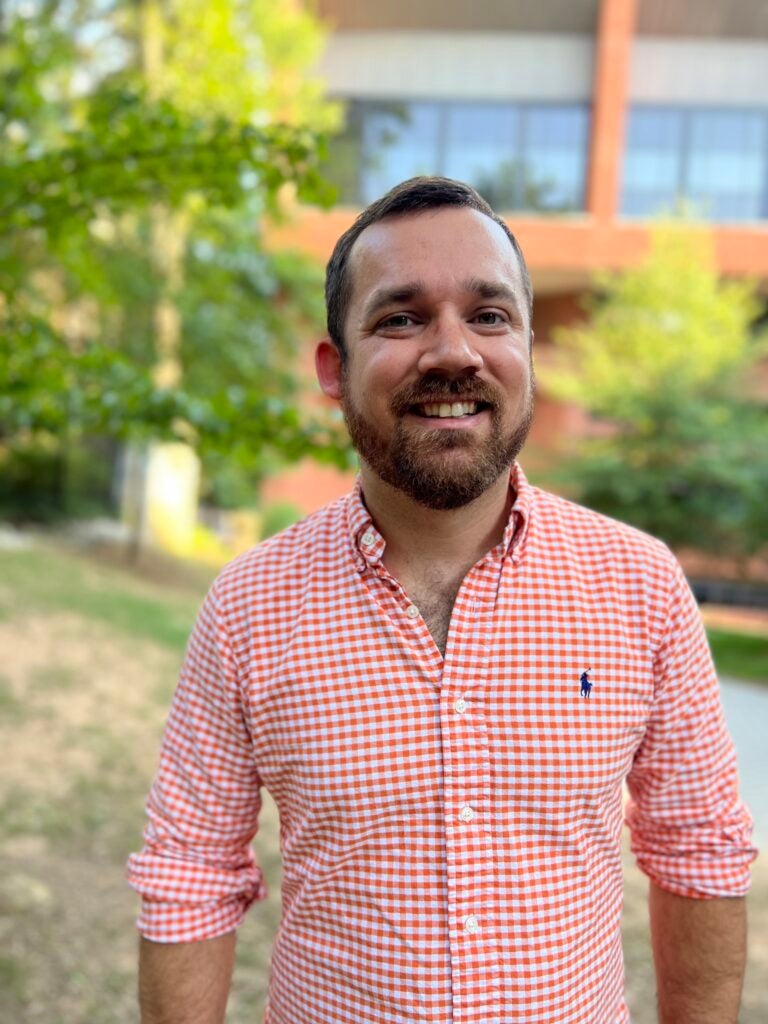
Assistant Professor, The Earth Commons
Email: tj302@georgetown.edu
Taylor Jones is an environmental scientist, engineer, and assistant professor at the Earth Commons. His research focuses on innovative ways to measure and model concentrations of greenhouse gases in our atmosphere, particularly in cities, and methods for using this data to help policymakers and other stakeholders better understand carbon emissions. He uses data from self-designed low-cost sensor networks, remote sensing satellites, and everything in between. Dr. Jones also studies the role that urban vegetation plays in regulating local temperature as well as carbon and water cycles.
After receiving his bachelor’s degree in electrical engineering from the University of Maryland, he designed, built, and deployed LIDAR sensors for the study of atmospheric aerosols and clouds—collaborating with NASA and researchers around the world. He holds master’s and doctorate degrees in Environmental Science and Engineering from Harvard University, where his research topics included inverse modeling techniques for the quantification of greenhouse gas emissions from cities.
As a research professor in Boston University’s Terrestrial Carbon Lab, Dr. Jones developed new instrumentation for the remote sensing of photosynthetic activity in plants via solar-induced fluorescence (SIF). He is a member of the science team for NASA’s OCO-2 and OCO-3 satellite missions, which measure CO2 concentrations and SIF around the world. Dr. Jones has collaborated with many other organizations, including the Environmental Defense Fund, the Department of Energy, and the National Institute of Standards and Technology (NIST) in Gaithersburg, Maryland, where he helps run an experimental forest.
Marcus King

Professor of the Practice in Environment and International Affairs, The Earth Commons, Edmund A. Walsh School of Foreign Service
Email: mdk7@georgetown.edu
Marcus D. King is Professor of the Practice in Environment and International Affairs, the Earth Commons, and Edmund A. Walsh School of Foreign Service.
Prior to Georgetown, King was the John O. Rankin Associate Professor of International Affairs and Director of the Master of Arts in International Affairs Program at George Washington University’s Elliott School. Dr. King previously served as Director of Research and Associate Research Professor.
Dr. King also draws on experience from a number of governmental and non-governmental organizations including CNA Corporation’s Center for Naval Analyses, as Research Director of the Sustainable Energy Institute, and Senior Manager for Energy and Security Programs at a private consultancy. He has held Presidential appointments in the Office of the Secretary of Defense, where he represented the United States for negotiation of the UN Framework Convention on Climate Change, and the Office of the Secretary of Energy. King is Vice Chairman of the Council on Strategic Risks and a member of the Center for Climate and Security’s Advisory Board.
Dr. King maintains expertise in areas including environmental security, climate change resilience and transnational security. His present research focuses on identifying links between water and violence. His most recent book is Weaponizing Water: Water Stress and Islamist Extremist Violence in Africa and The Middle East (Lynne Rienner 2023).
Megan Lickley
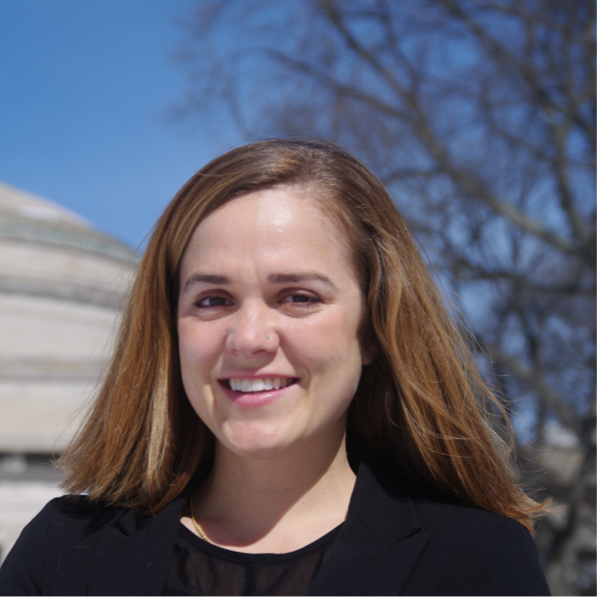
Assistant Professor, The Earth Commons, Edmund A. Walsh School of Foreign Service
Email: ml2095@georgetown.edu
Megan Lickley is an Assistant Professor in the Earth Commons and the Science Technology and International Affairs Program in the School of Foreign Service. She has a PhD in Climate Science from MIT’s Department of Earth, Atmospheric and Planetary Sciences. Her research uses methods from data science and climate science to reduce the uncertainty in the climate system and inform adaptation and mitigation policy. She uses tools from data science that bridge climate science, math and policy in order to assess a range of outcomes and their likelihood of occurring. This involves combining various Earth system models with in situ measurements and population data in a rigorous statistical framework. She applies these methods to core climate issues including water resources, the duration of rapid climate change, and sea level change. Her recent work has focused on evaluating global compliance with the Montreal Protocol, which regulates the production of ozone depleting substances and their replacement chemicals, many of which are potent greenhouse gases.
Prior to her PhD she consulted to the World Bank in Uganda and taught math courses in the Democratic Republic of Congo. She has a MSc in Technology and Policy from MIT and a BSc in mathematics and statistics from Acadia University. Before starting her PhD she spent time in the Democratic Republic of Congo teaching math courses at the Catholic University of Bukavu. She’s consulted for the World Bank in Uganda, contributing to a climate change impacts report and strategy plan. She is a co-author to the ongoing International Ozone Assessment.
Jeremy T. Mathis
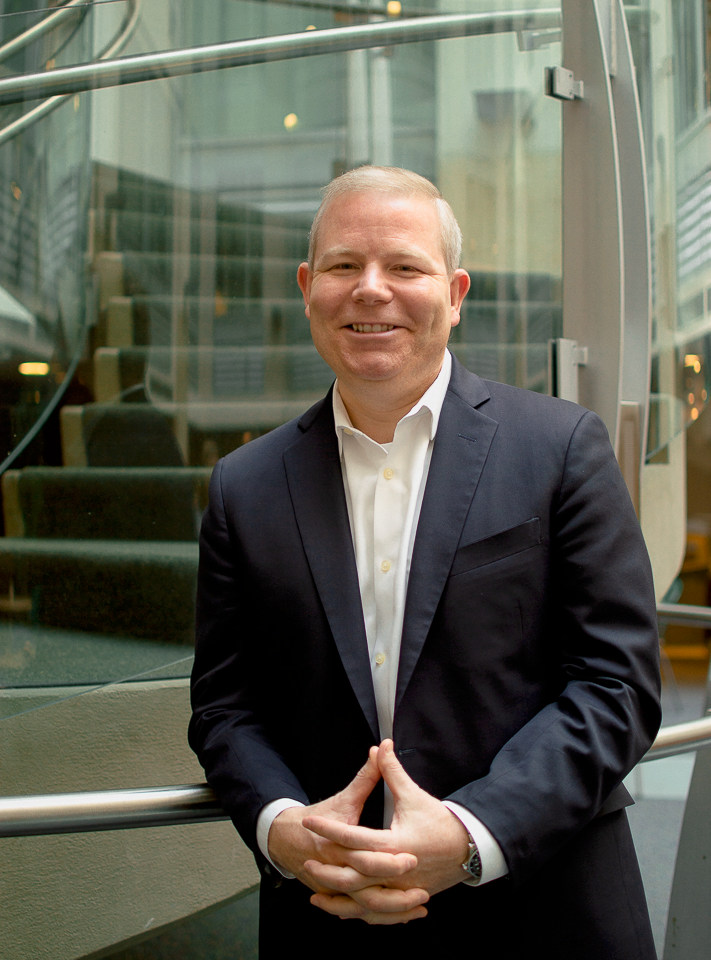
Associate Teaching Professor, The Earth Commons, Edmund A. Walsh School of Foreign Service
Email: jtm126@georgetown.edu
Jeremy T. Mathis, Ph.D. is a climate security professional and has been an Adjunct Associate Professor in the School of Foreign Service at Georgetown University since 2018. He has published more than 100 peer-reviewed journal articles that have been cited more than 15,000 times. Jeremy has chaired numerous national and international working groups, visiting more than 60 countries in a professional capacity. From January to October 2018, he served as a science policy advisor in the Office of U.S. Senator Lisa Murkowski (R-Alaska). From 2012 to 2017, Jeremy worked in various programmatic and executive roles for the National Oceanic and Atmospheric Administration (NOAA), where he specialized in global climate issues, including a rotation at the Office of Science and Technology Policy at the White House. From 2007 to 2012, he was an Assistant Professor at the University of Alaska Fairbanks and the founding Director of the first U.S. Ocean Acidification Research Center. Dr. Mathis received his undergraduate degree in chemical engineering and his Ph.D. in chemistry from the University of Miami (FL).
Jesse Meiller
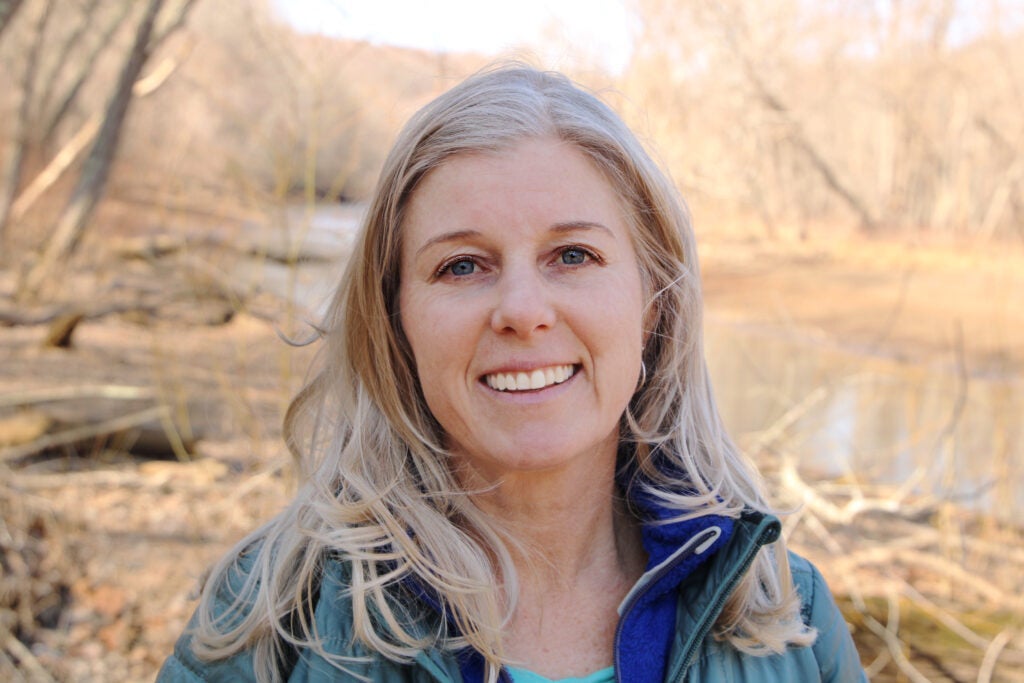
Co-Director, Joint Environment & Sustainability Program
Teaching Professor, The Earth Commons
Email: jm3566@georgetown.edu
Jesse Meiller is a marine ecologist and environmental toxicologist and Teaching Professor in the Earth Commons. Currently, she works with her students and colleagues to investigate microplastics in water, sediment, and biological communities in the Chesapeake Bay and to increase awareness and understanding about the environmental and health effects of pollution. She teaches undergraduate and graduate students and conducts teacher training for middle and high school teachers to investigate microplastics with their students. Jesse regularly conducts outreach to local environmental and community-based organizations on microplastics and connects people to their local waterways and environments. Jesse received her PhD from the University of Maryland in the Marine, Estuarine, Environmental Sciences (MEES) program after doing her undergraduate work at Johns Hopkins University. She received and held an AAAS fellowship in Environmental Science Policy at the EPA. Following her fellowship, and while still at the EPA, she provided expertise in aquatic and invertebrate biology and toxicology as well as on science policy and regulatory issues. Jesse represented the US on several Expert Groups for the Organization for the Economic Cooperation and Development (OECD). Prior to coming to Georgetown, Jesse was a Hurst Senior Professorial Lecturer in Environmental Science as well as the Director of Undergraduate Studies in the Environmental Science Department at American University in Washington, DC.
Orissa Moulton
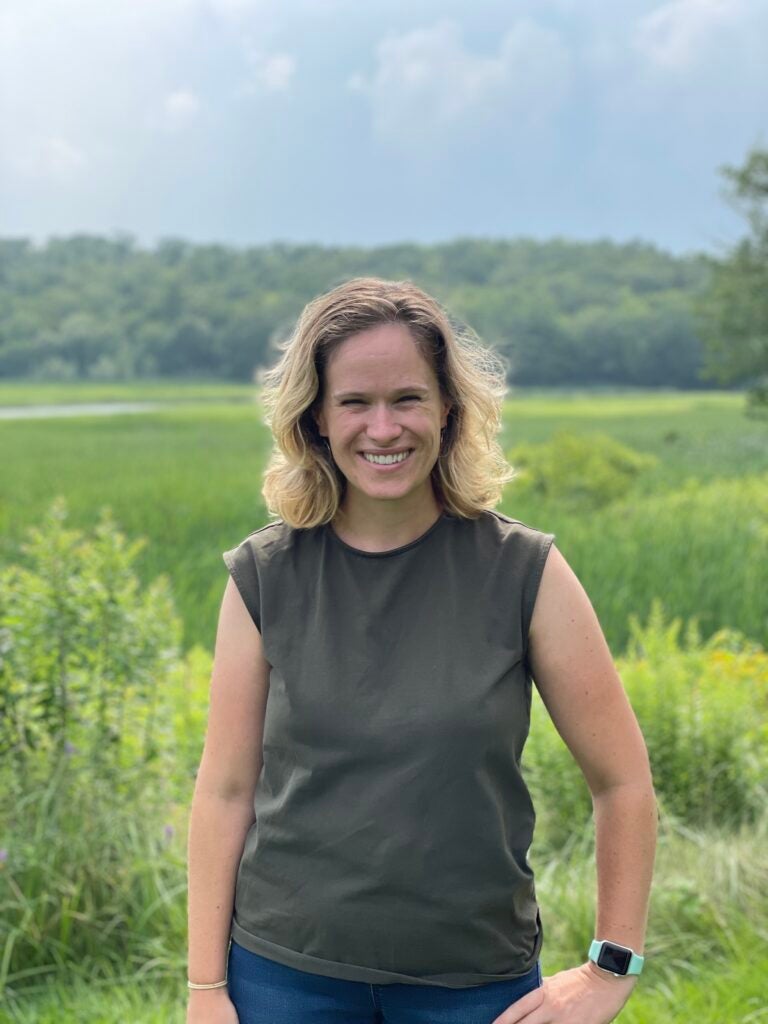
Associate Teaching Professor, The Earth Commons
Email: om211@georgetown.edu
Orissa Moulton is a coastal ecologist and an Associate Teaching Professor in the Earth Commons, where she is a collaborative instructor for foundational courses in Environmental Science for undergraduates. Her research background is in community- and ecosystem-level ecology of temperate rocky shorelines. Dr. Moulton’s scholarly focus is on inclusive experiential learning and environmental literacy for early career undergraduate students in the natural sciences, and she is a leader in the development of an innovative peer mentoring program for undergraduates in Environmental Science at Georgetown.
Dr. Moulton received her PhD from the University of Chicago in the Department of Ecology & Evolution after completing a MS in Zoology at Oregon State University and a BA in Biology at Wheaton College of Massachusetts. She also holds a Certificate in University Teaching from the University of Chicago.
Before coming to Georgetown, Dr. Moulton spent four years as a Lecturer in Biology at William & Mary (Williamsburg, VA) where she developed and led undergraduate courses in Introductory Biology and Ecology, and graduate courses in Community and Ecosystem Ecology. Prior to that, she was an Instructional Assistant Professor of Marine Biology and Chair of the Undergraduate Research Program at Texas A&M Galveston.
Roshi (Roshanak) Nateghi

Associate Professor, the Earth Commons
Email: rn633@georgetown.edu
Dr. Nateghi holds an undergraduate degree in Mechanical Engineering from Imperial College London and earned both her master’s and Ph.D. from Johns Hopkins University. Her doctoral research focused on the resilience of electric power systems under extreme events.
Following her Ph.D., Dr. Nateghi was selected as a Science, Engineering, and Education for Sustainability Fellow by the National Science Foundation (NSF). In this role, she held a joint appointment between Johns Hopkins University and Resources for the Future, where she worked on sustainable energy infrastructure planning.
Dr. Nateghi later joined the School of Industrial Engineering at Purdue University, where she led the Laboratory for Advancing Sustainable Critical Infrastructure. After earning tenure at Purdue, she joined the U.S. Department of Energy, initially as an American Association for the Advancement of Science, Science & Technology Policy Fellow in the Office of Energy Efficiency and Renewable Energy, and later as a Program Manager in the Office of Electricity. In these roles, she helped shape national energy strategies focused on grid modernization and resilience.
Dr. Nateghi’s research is highly interdisciplinary, bridging engineering, data science, and policy. Her work advances the theory and practice of infrastructure resilience and sustainability, while also informing evidence-based policymaking to support more climate-resilient communities.”
Anne Rosenwald

Vice Dean
Email: Anne.Rosenwald@georgetown.edu
Anne Rosenwald received her PhD from the Johns Hopkins University School of Public Health. She came to Georgetown as an Assistant Professor of Biology in 1997 after post-doctoral work at the Carnegie Institution of Washington and the National Cancer Institute, followed by two years at Dickinson College as an Assistant Professor of Chemistry. Now a Full Professor of Biology, she teaches courses in Biochemistry, Bioinformatics, Cell Biology, and Global Health. Her research interests include regulation of membrane traffic, fungal biology, and undergraduate bioinformatics education. She joins the Earth Commons as Vice-Dean to promote awareness of environmental issues, especially climate change, within the Georgetown community and beyond.
Andrew Steer
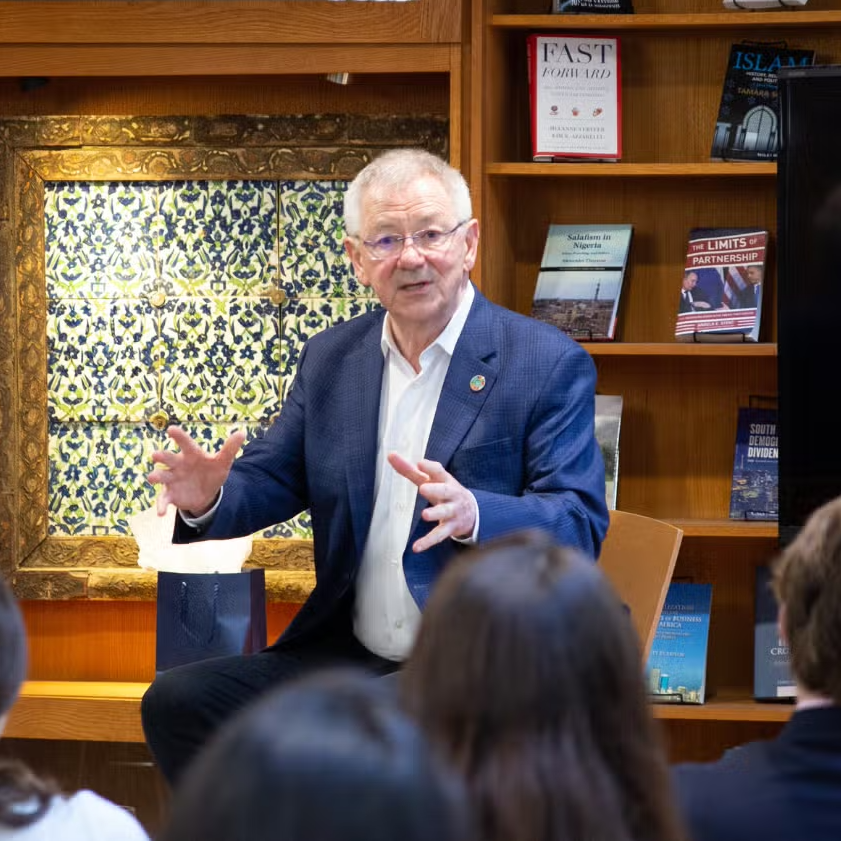
Distinguished Professor of Practice in Economics and Sustainability at Georgetown University, The Earth Commons and School of Foreign Service
Email: as5818@georgetown.edu
Sir Andrew Steer, PhD, is an economist and environmental leader promoting social and economic progress within planetary boundaries. He served, most recently, as the inaugural President and CEO of the Bezos Earth Fund (2021-25), the world’s largest philanthropy for nature and climate, where he oversaw investments in systems change across nature protection, food and agriculture, industrial and energy decarbonization, financial reform, and the application of AI and big data.
He is now Distinguished Professor of Practice in Economics and Sustainability at Georgetown University and the London School of Economics. He was President and CEO of the World Resources Institute (2012-2021), leading a team of 1600 professionals at an NGO consistently ranked as the top Think Tank/Do Tank on sustainable development. Previously, he served as Special Envoy for Climate Change at the World Bank, Director General at the UK’s Department of International Development, and Director of the World Bank in East Asia. In 2024 Andrew was knighted in recognition of “sustained contribution as one of the world’s best-known leaders in global sustainable development economics”; and was named by Forbes as one of the world’s 50 most impactful climate leaders, in its inaugural Sustainability Leaders awards.
He is a member of the UK Foreign Secretary’s External Foreign Policy Board, co-chair of the World Economic Forum’s Global Futures Council on Innovative Finance; and a member of the boards of BRAC, the Global Energy Alliance for People and Planet, and the China Council for International Cooperation on Environment and Development. Andrew was educated at St Andrews University, the University of Pennsylvania, and Cambridge University, and has a PhD in Economics and Finance. He is married to Dr. Liesbet Steer. They have two children: Charlotte, an environmental professional, and Benjamin, an Indie Pop artist.
Philip Wolfe
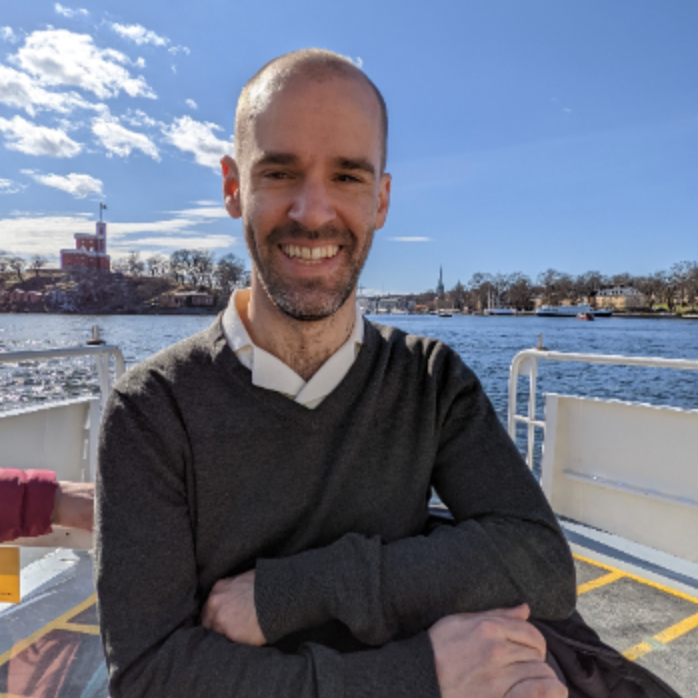
Research Faculty, Lickley Lab
Dr. Philip Wolfe has a PhD in Aeronautics and Astronautics and a Masters in Technology and Policy from MIT. He has a B.S.E. in Mechanical Engineering with a Minor in History from Duke University. His past research has looked at how to incorporate uncertainty in environmental decision making. After obtaining his PhD, he worked as a diplomat with the Foreign Service, focusing on environment, science, technology and health diplomacy. He served in various positions in Helsinki, Hanoi, Shanghai, and Washington, DC. Philip has several years experience in environment and development-oriented start-ups, and is an alumni of MassChallenge and Start-Up Chile.
Lucy Zipf
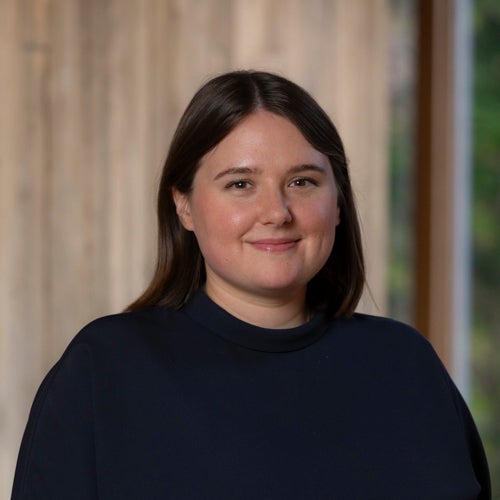
Assistant Teaching Professor, The Earth Commons, Edmund A. Walsh School of Foreign Service
Dr. Lucy Zipf is an ecologist studying the integrated impacts of co-occurring global changes–climate, habitat, and conservation management–on biological communities. Dr. Zipf uses observational and experimental field studies with statistical modeling approaches to forecast changes in bird and insect phenology and reproductive success. Dr. Zipf also works closely with community science organizations to involve stakeholders in her research. In her classroom, Dr. Zipf prioritizes hypothesis-driven exploration of the natural and built environment. Dr. Zipf works with students to build the foundational knowledge needed to understand big environmental problems and then reexamine their and other environments with critical thought.
Collaborators
Angela van Doorn

Assistant Teaching Professor, The Earth Commons, Department of Biology
Email: Angela.van.Doorn@georgetown.edu
Angela van Doorn has a Ph.D. in Zoology and a MS in Environmental Science from the University of Cape Town, South Africa. Her past research focused on wildlife conservation and specifically human/primate conflict. She has lived and worked in East, South, and West Africa for a period of 12 years and regularly incorporates this experience into her teaching. Here at Georgetown, Angela teaches both environmental science and conservation courses.

